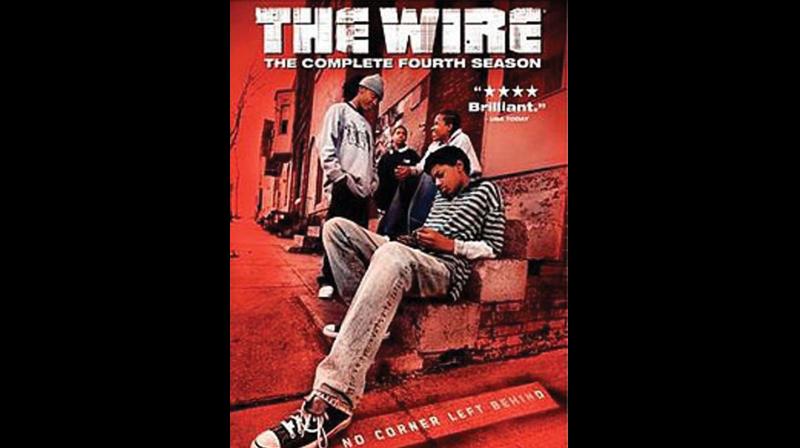On the contrary: Walk the wire

One of the finest American television series is the crime drama, "The Wire", currently available on Hotstar, comprising 60 episodes over five seasons. Conceptualised and written by author and former crime reporter, David Simon, with inputs from George Pelecanos and Denis Lehane, the show sets out to explore the complicated theme of moral ambivalence. "In the drug-ridden streets of West Baltimore, there are good guys and there are bad guys. Sometimes you need more than a badge to tell them apart." Simon originally set out to create a police drama based on the experiences of his writing partner, Ed Burns, a former homicide detective and public school teacher which turned out to be a masterstroke. Written with the precision of a skilled surgeon wielding a scalpel, the entire series hangs together quite brilliantly while carrying the whiff and flavor of a walk on the wild side.
Rather than juking the stats by arresting petty street level dealers, Burns had attempted long-term solutions by using hi-tech surveillance equipment to take down drug kingpins despite being constantly frustrated by the bureaucracy of the Baltimore Police Department. Simon feels his pain as he sees many similarities with his own struggle as a reporter for the Baltimore Sun where an unfeeling editor asks him to focus on "positive" issues like development instead of "depressing crap" like inner city crime which terrifies our readership. Fittingly, the street names for crack cocaine are darkly hilarious: "WMD, Bin Laden and Red Tops."
In distinguishing the police characters from other television detectives, Simon makes the point that even the best cops in the show are motivated not by a desire to protect and serve, but by the intellectual vanity of believing they are smarter than the criminals they are chasing. Also, while some of the cops do exhibit decent and altruistic qualities, many others portrayed on the show are sloppy, brutal, racist, self-aggrandizing morons hamstrung by a lethal combination of bureaucracy and politics. The bad guys are not always motivated by profit or a desire to harm others; many are trapped in their existence and all have many redeeming human qualities. Even so, The Wire does not sugar-coat or gloss over the horrific effects of their actions.
Set in the primarily black, inner-city dumps of Baltimore, The Wire introduces a different institution of the city and its relationship to law enforcement in each season, while retaining characters and advancing storylines from previous seasons. Kicking off with the illegal drug trade, the show goes on to expose the smuggling racket at the seaport, the inner workings of city government, education and schools and the filth and corruption of the print news medium. Numerous real-life Baltimore characters like former mayor Kurt Shmoke figure in recurring guest roles which give it a gritty authenticity. Despite being conceptualised as a crime drama, Simon says the show is "really about the American city, and about how we live together. It's about how institutions have an effect on individuals. Whether one is a cop, a dock labourer, a drug dealer, a politician, a judge or a lawyer, all are ultimately compromised and must contend with whatever institution to which they are committed."
Despite receiving average ratings and almost no major awards, for its searingly honest portrayal of urban life through the lens of society and politics, The Wire has now come to be widely regarded to be one of the greatest television shows of all time. One reason is the superb casting: by avoiding big-name stars and using character actors who appear natural in their roles, the show's producers have had the courage to defy viewer expectations of chocolate-box heroes. In the process they have achieved true alchemy by tossing hard-boiled African-American hoods into the crucible and produced cinematic gold by drawing from them a glorious range of humanity and empathy.

